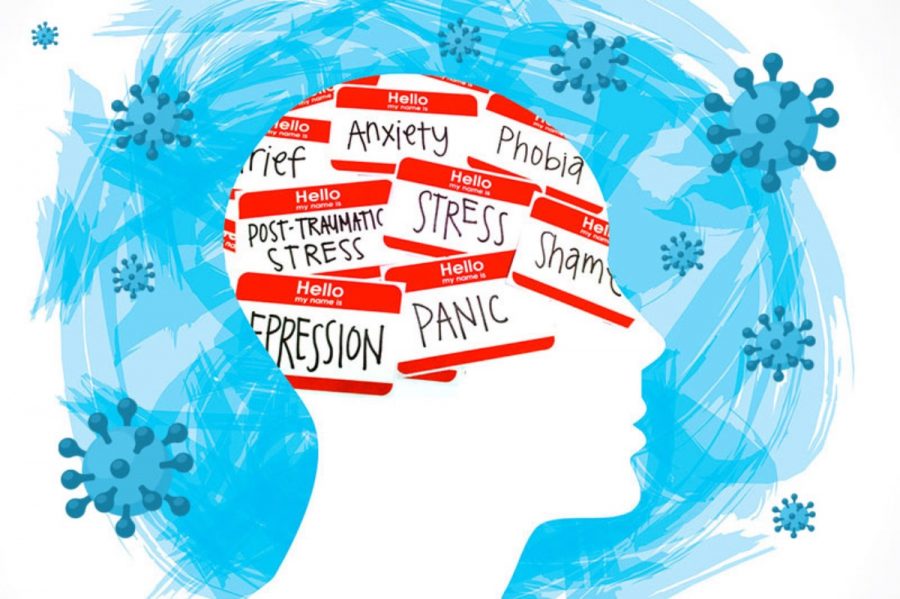Mental health in isolation
Body dysmorphic disorder during COVID-19
More stories from Grace Olson
Photo by Submitted
This week I am going to talk about body dysmorphic disorder: what is body BDD, what are some symptoms and how COVID-19 has impacted individuals with it.
BDD is a “mental health disorder in which you can’t stop thinking about one or more perceived defects or flaws in your appearance,” according to Mayo Clinic.
These flaws usually appear very minor or can’t be seen at all by others. But those with this disorder may feel so anxious and embarrassed about these flaws that they may avoid social situations.
Someone with BDD may focus on their appearance and body image, always check the mirror and seek reassurance during many hours of the day, according to Mayo Clinic.
Some symptoms may include believing that you have a flaw in your appearance that makes you ugly, believing others make fun of you because of your appearance, constantly checking your appearance and “fixing” any flaws and constantly comparing yourself to others.
These thoughts and actions can be extremely difficult to control and are mostly unwanted. They can also be time-consuming — so much so that they can cause problems in one’s social life, work and school.
Because these thoughts often cause embarrassment, it can be difficult to reach out and seek help. If someone is experiencing BDD, the best thing to do is call a medical professional, a mental health professional or a close loved one for support.
In some cases, BDD can lead to suicidal thoughts. If you or someone you know is struggling, please reach out for help through the following:
-
Call 911
-
Call a suicide hotline number. In the U.S., the National Suicide Prevention Lifeline is 1-800-272-8255 or you can webchat a professional at suicidepreventionlifeline.org/chat
-
Call your mental health professional, if you have one
-
Call your primary care provider
-
Contact any spiritual leader, a minister or someone in your faith community
According to the Anxiety and Depression Association of America, when one has BDD they may suffer from other mental disorders as well. These disorders may include an eating disorder, obsessive compulsive disorder or depression.
Because the pandemic is still traveling through America and other parts of the world, those suffering from depression may feel a sense of hopelessness and worthlessness. These feelings could lead to a furthering depression or even suicide, according to the ADAA.
While staying at home, those with BDD might increase certain habits of compulsions, obsessions and self-criticism.
To abide by social distancing guidelines and other COVID-19 protocol, many doctors’ and therapists’ offices are closed, which means many appointments are done online.
Like myself, and others close to me, many people are not comfortable with doing therapy through a video chat or online option. Because most services are virtual, individuals with BDD, or other mental illnesses and disorders, may continue to suffer without help.
But, there are options. According to Mental Health America, cognitive-behavioral therapy may “effectively reduce symptoms of body dysmorphic disorder.”
CBT targets BDD-related thoughts and behaviors to reduce these patterns. People in CBT will learn how their thinking patterns contribute to their symptoms and how to change those thoughts.
MHA also has a self-help worksheet to help address negative thought patterns.
As mentioned earlier, if you, a friend, acquaintance or anyone you know is struggling, please reach out. There is help out there and it is more than possible to make progress and pull through.
Olson can be reached at [email protected].












McShwifty Ramen • Feb 22, 2021 at 2:04 pm
The widespread of the COVID-19 pandemic has been affecting our lives for the past months. We are suffering from depression and anxiety. It brings Thanks for the tips you’ve shared with us. It is very useful during this tough time as it brought many changes in our lives. Seeking the help of psychologists will help us reduce our worries. Here is Family counseling in bucks county pa it is very helpful to you guys.